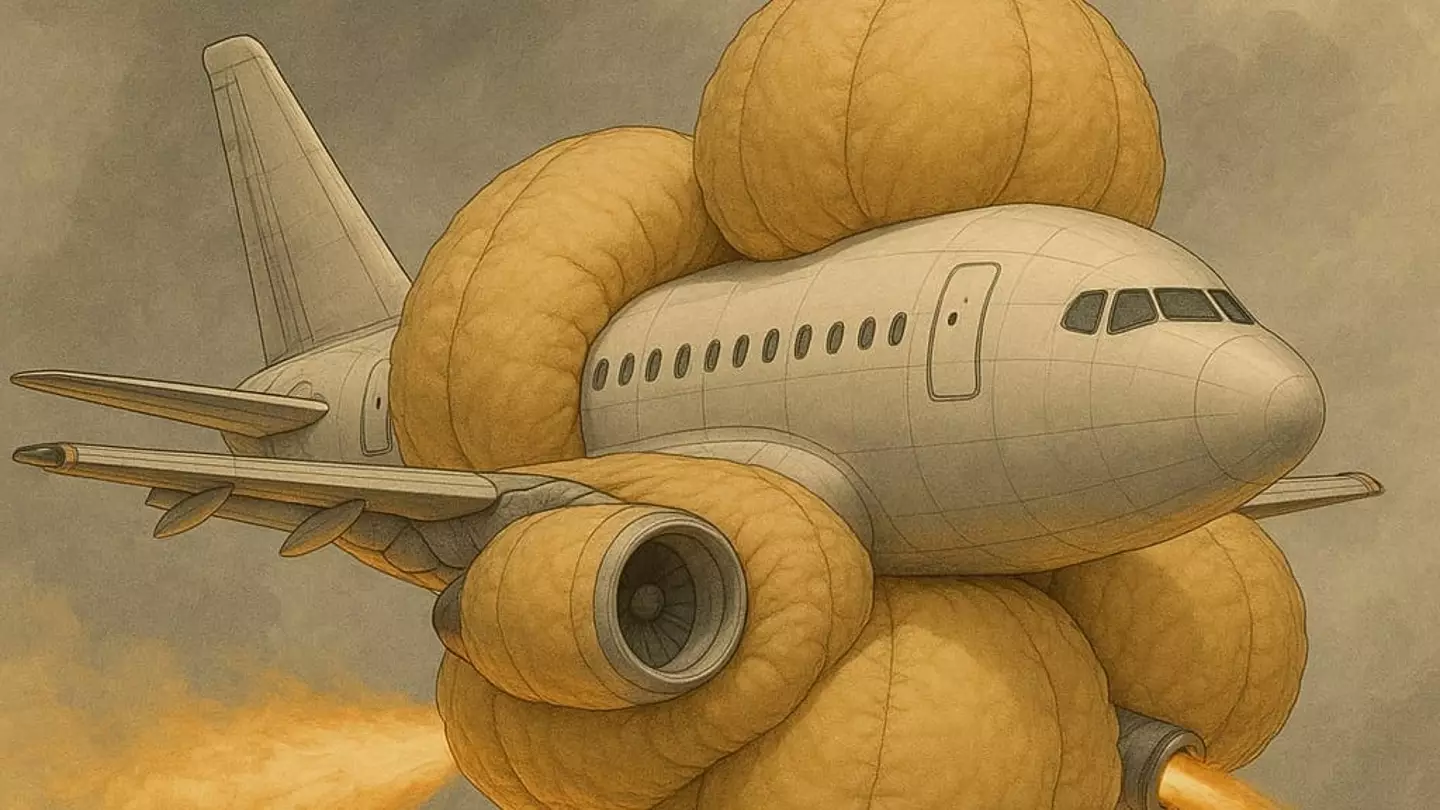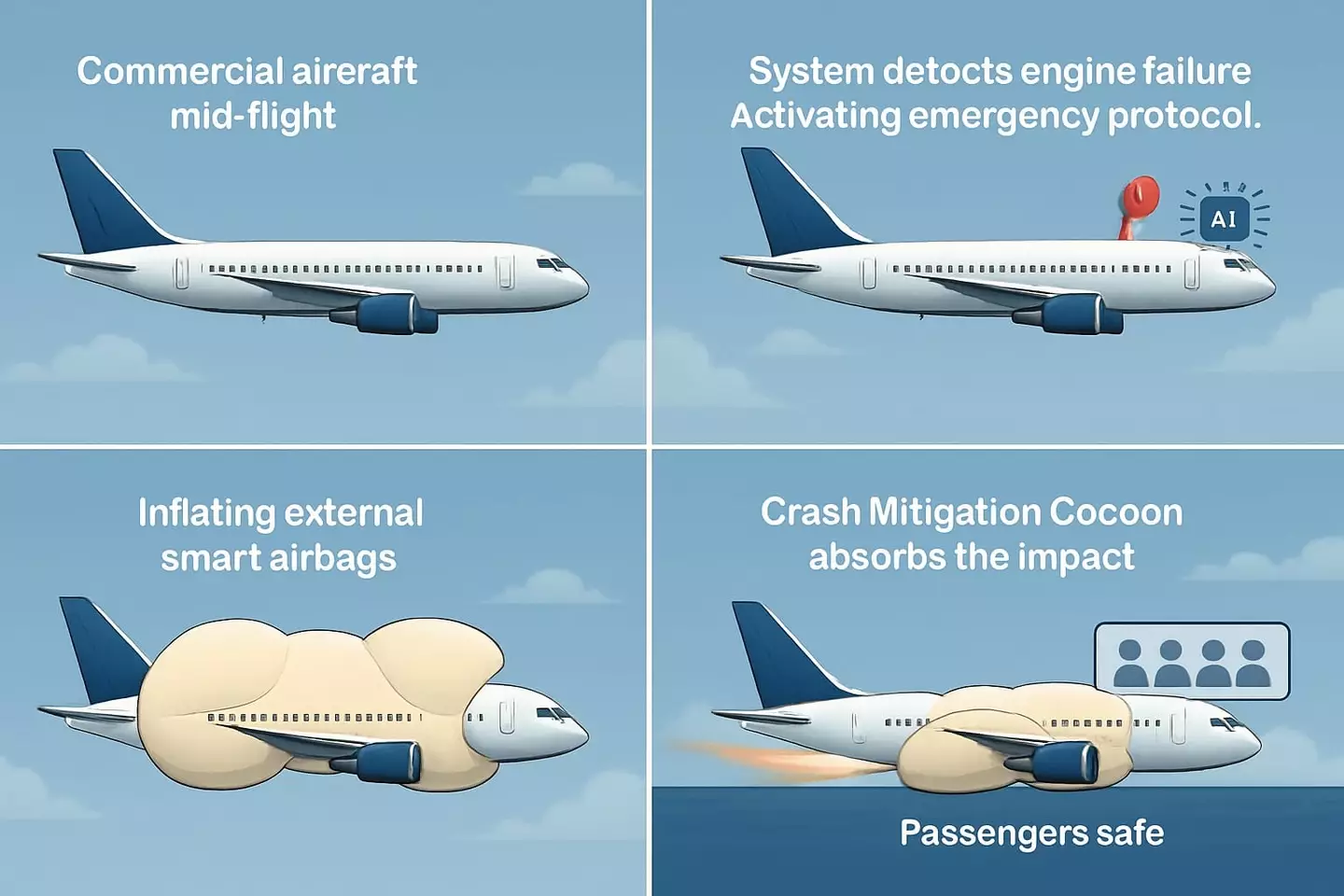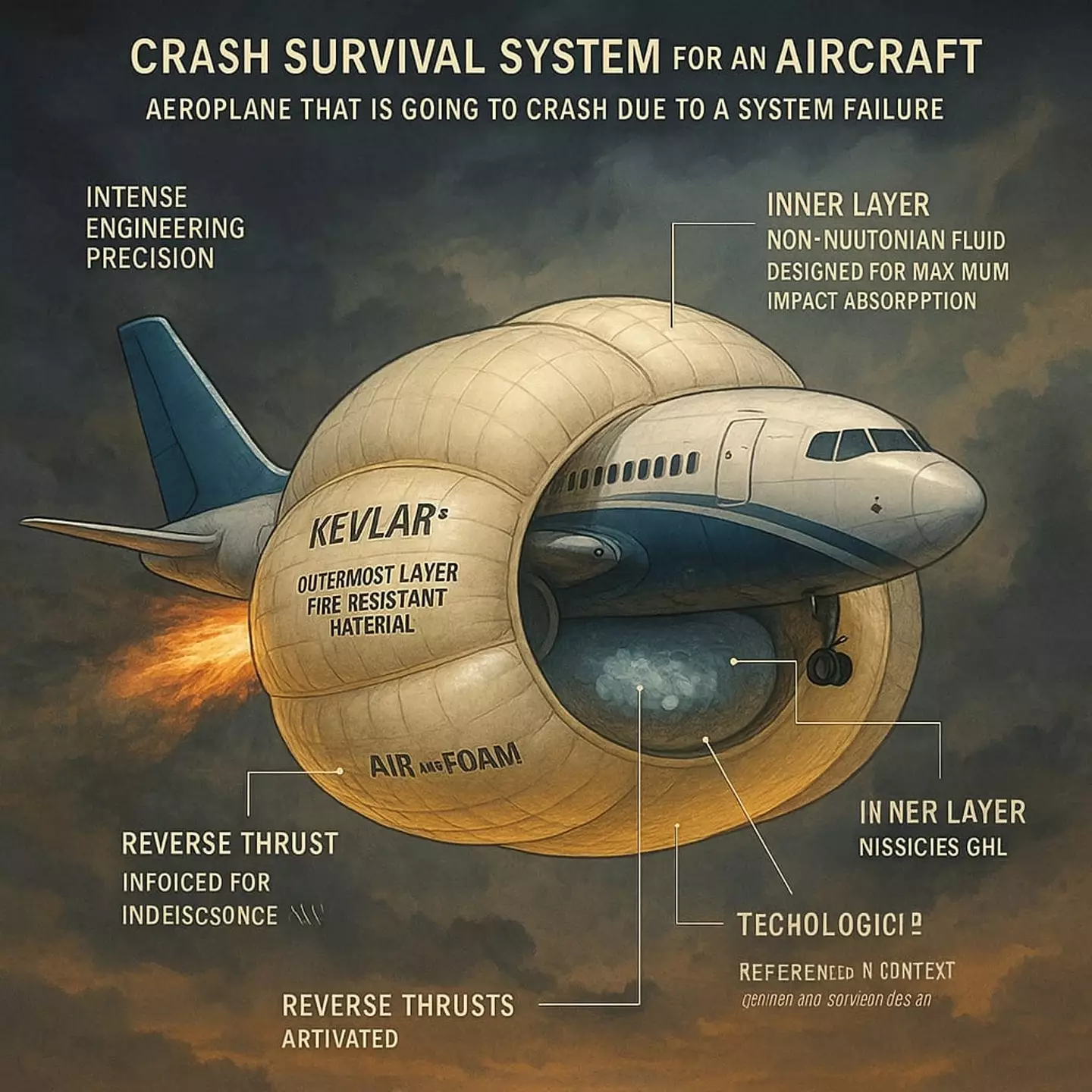
Engineers have just dropped a strange AI prototype for a ‘crash-proof’ plane following the Air India disaster.
Earlier this summer, on June 12, Air India Flight 171 departed from Ahmedabad Airport and was headed to London when it tragically crashed into a medical building around 30 seconds after takeoff.
The tragedy claimed the lives of 241 passengers and crew and dozens more on the ground.
Miraculously, 40-year-old British man Vishwash Kumar Ramesh was the sole survivor of the aviation disaster, who had been sat in seat 11A on the doomed jet.
Advert
An inquiry later determined that both switches that controlled the fuel supply to both engines were cut off, causing the plane to lose altitude.
Now, engineers have conjured up a bizarre yet apparently life-saving concept that they say could save human lives in the event of a similar tragedy.

They harness the power of artificial intelligence with a good old-fashioned tried-and-tested method that we commonly see in vehicles on the ground - airbags.
The major difference is that, rather than facing passengers inside the aircraft, the airbags hug the outside of the jet and are triggered by AI detection systems.
The imagined blueprint of the plane with its external airbags inflated admittedly looks a little ridiculous, yet the initiative, crowned Project REBIRTH, has been put forward as a finalist for the prestigious James Dyson Award which celebrates inventions that can change the world.
"Project REBIRTH is an AI-powered crash survival system using airbags, smart fluids, and reverse thrust to reduce impact and save lives when all else fails," the description reads. "Born from tragedy, built with purpose."
The way the system works is based on five smart technologies that can predict when an airplane is about to crash.

Artificial intelligence monitors the jet's altitude, speed, engine status, direction, fire and pilot response, the team claims, and if a crash is unavoidable below 3,000 feet, it automatically kicks the high-speed airbags into place around the nose, belly and tail in less than two seconds.
The designers claim the pillowy protection, which forms a giant cocoon around the fuselage, can turn 'fatal crashes into survivable landings' since the padding apparently absorbs the brunt of the impact.

In the event the plane is beginning to plummet, the system can also allegedly slow the descent - and in the case of engine failure, sets off gas thrusters to reduce its speed.
The team predict these measures will further stabilize the plane by eight to 20 percent.
Reducing injury even further, they say the jet has 'non-newtonian fluids' in its walls and seats that stay soft but harden upon impact.
Finally, post-crash, rescue aids then come to life, transforming the plane into a 'bright orange shell' with GPS, infrared beacons and exit lights.
Eshel Wasim and Dharsan Srinivasan, of Birla Institute of Technology and Science in Dubai, UAE, say they were motivated by the tragedy of the Air India flight to come up with a new design.

"Project REBIRTH was born not in a lab, but from a moment of heartbreak," they said, describing how that feeling of 'helplessness haunted us'.
If the pair win the Award, set to be determined on November 5, they will receive more than $40,000 and an opportunity to start their business and bring their vision to life.
Topics: Technology, Plane, World News, Business, Artificial Intelligence